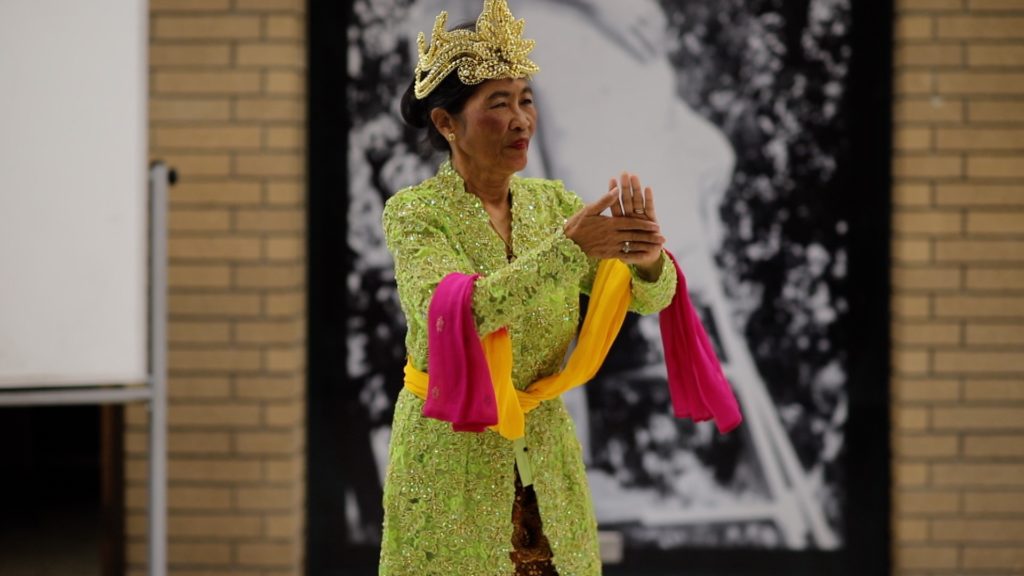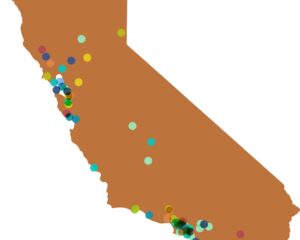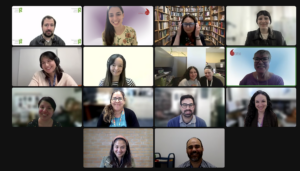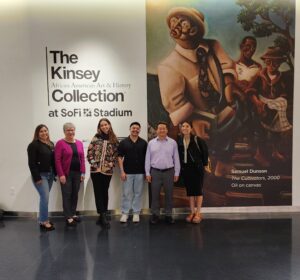In honor of Women’s History Month, we’ve decided to highlight a few projects from our own history focusing on the accomplishments of different individuals and groups of women from around California. Read on below to see some of our favorites.
Watch a Documentary About Women’s Multicultural Dance in Sutter County
For the past 15 years, an annual women’s multicultural program, “Dance Around the World” at the Sutter County Library was well-attended but not known to the wider community of Sutter County. As a part of her Library Innovation Lab grant, Literacy Services Coordinator Ayla Elkins worked with a local filmmaker to document three different women whose stories of immigration intersected at the library and whose distinct cultural dance practices connect them to each other. An Aztec dancer, an East Indian woman, and an Indonesian dancer were all profiled in the film, which premiered to an enthusiastic audience at the library in an evening combined with live dance performances. Mark this significant anniversary by watching the short film online today.
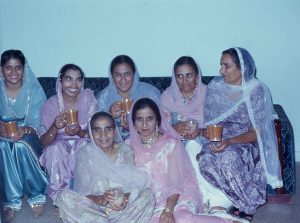
A Short Film & Digital Archive of Punjabi American Women’s Experiences
DocumentaryD film Walking into the Unknown: A History of Punjabi Women in California was created from the first-ever study to preserve and share the life histories of women in the significant Punjabi American community in Sacramento Valley. In collaboration with experts from the community, UC Davis historians interviewed 36 Punjabi American women in the remote rural Yuba City area and recorded 12 women performing Punjabi folk songs about important life cycle events. The Punjabi American Women Oral History Project, part of a long-standing partnership between UC Davis and Yuba City’s Punjabi American Heritage Society, resulted in the film, which is now available online. The videotaped interviews, photographs, and transcripts were shared with researchers and audiences worldwide via the existing UC Davis Pioneering Punjabis Digital Archive.
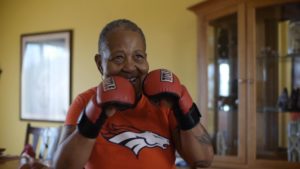
A Short Documentary on a Community for Aging Lesbians
California Humanities-supported documentary short A Great Ride looks at older lesbians—Sally Gearhart, Brenda Crawford, and several women who live in an LGBTQ-friendly retirement community in Santa Rosa—aging with dynamism and zest for life, determination, and humor. Sally Gearhart, a retired women’s studies professor and activist who fought alongside Harvey Milk, lives in the Northern California woods where she is surrounded by beauty but also faces challenges to her independence. Brenda Crawford is an African American political activist who was priced out of Oakland. She continues her feisty community engagement in wonderfully diverse Vallejo, California, but faces homophobia. Octogenarian Shirley Liberman, and couples Nancy and Marjorie and Sue and Patty, make their homes in an LGBT-friendly retirement community. Deep friendships, determination, engagement, and quirky death-defying humor color this group portrait of women who are courageous role models for aging. Watch the trailer now and don’t miss the screenings at the Sebastopol Documentary Film Festival on March 30 and March 31.
An Audio Tour of Military Women’s Experience in 1940s Irvine
The former El Toro Marine Corps Air Station in Irvine California is on the same land as what is now The Great Park. Women veterans and military wives who were stationed here during the 1940s are the subject of the iOS application The Women of El Toro. The audio tour of the park features stories of the 1940s, illustrating a relationship between the words and park locations. Some of these experiences include: a balloon ride augmented with stories about flight, the farmer’s market with stories about living on a farm or the farm land in Orange County, the kid’s play area with stories about raising children on the base, a reflecting pond with stories about how these women imagine El Toro will be remembered, the administrative building with stories about doing administrative work, and so on. The project raises awareness of women’s roles in the military and helps to enrich visitor’s appreciation of the history and landscape of the park. Created in collaboration between Cal State Fullerton (CSUF), the Center for Oral Public History at CSUF, and the Orange County Great Park, the project can be viewed online here.
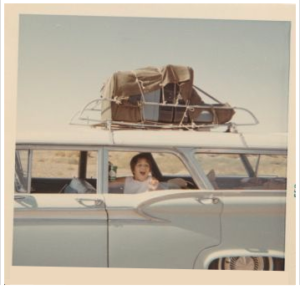
Stories of How Women Got Their Kicks on Route 66
The Women on the Mother Road in Southern California: Route reexamines the iconic Route 66 from a female, Californian perspective. The “Mother Road” as it was deemed by John Steinbeck, running roughly 2,400 miles represents many American experiences and stories, but for long had ignored those of women and girls. Archival photos and filmed oral history interviews about diverse women’s experiences along Route 66 create a wider historical, women’s studies and media studies context for stories about this famed road. A website and oral history project in 2016 created a public history record that sheds light on diverse women’s experiences over several decades. View the California stories online now.
Women of the Northwest at the Zero to Fierce Festival in Arcata
Next week, the Third Annual Zero to Fierce (02F) Womxn’s Festival opens in Arcata, an exciting seven days of art, music, laughter, provocative thought, exploration, food and drink. Events include a weeklong art installation, an International Women’s Day Celebration, a discussion of the movie Roma, an original teen musical and performances by local musicians. Last year, the event featured an original play, Women of the Northwest, by Jacqueline Dandeneau, supported by a Humanities for All Quick Grant. The original script for Women of the Northwest was created in 2011, which explored the history of women in Humboldt County before 1950. After a successful run of the original version of this play that was supported in part by a California Humanities grant, Dandeneau sought to revise the original script, which was focused primarily on the histories of Euro-American women of this region. With the help of three researchers and the project’s humanities advisor, they researched and incorporated the history of the Chinese expulsion in Humboldt County, as well as the foundation of the Amity Club which was a little known African American Women’s organization that was active in the area for over 50 years. The project team also worked closely with the Native Women’s Collective to present a piece about water, coming of age and the genocide of local tribes to support the revision of this play. The script revisions endeavored to present historic accounts that would give voice to the overlooked, undocumented and unrecorded women of color who were part of the history of Humboldt County.
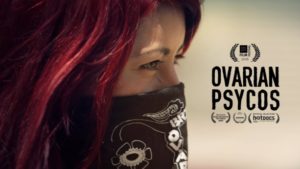
An Irreverent Feminist Bicycle Crew in East L.A.
An all-women bicycle brigade from East Los Angeles is the subject of Ovarian Psycos, a documentary film from producer/directors Joanna Sokolowski and Kate Trumbull-LaValle. The film follows Xela de la X, Andi and Evie—three young women of color inspired by the historic legacy of the Chicano/a Civil Rights Movement and committed to confronting racism and creating safer streets for women in their community. These fierce, unapologetic, feminist women of color created a space to center their own stories in the fight against personal and collective violence. Said the directors, “We hadn’t seen a film quite like this, one that profiled young women of color organizing, and believed their intersectional and radical approach to feminism and brilliant strategy to use bikes to deliver their message would make for a compelling, timely film.” Read an interview with Sokolowski and Trumbull-LaValle on our blog.

